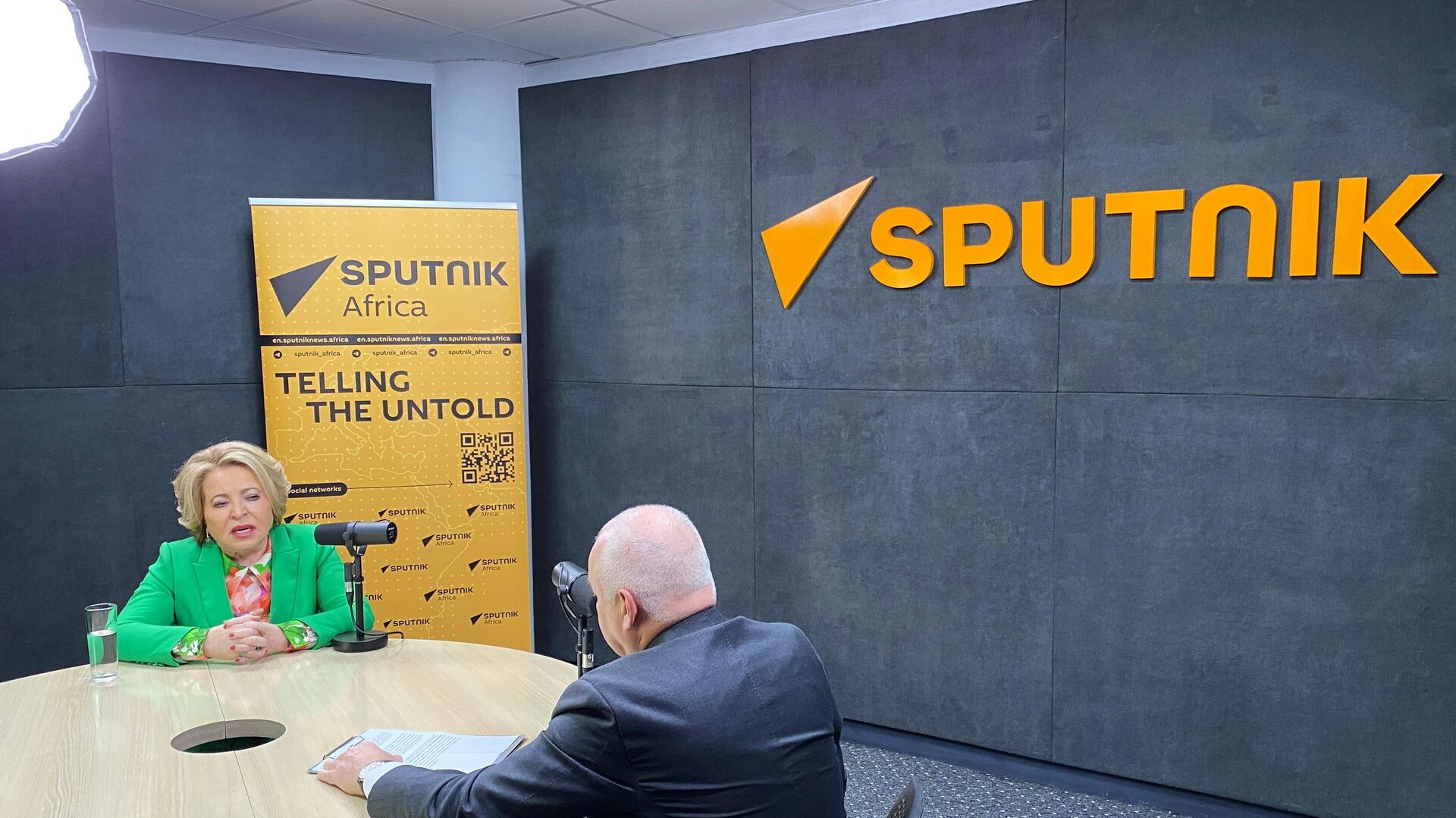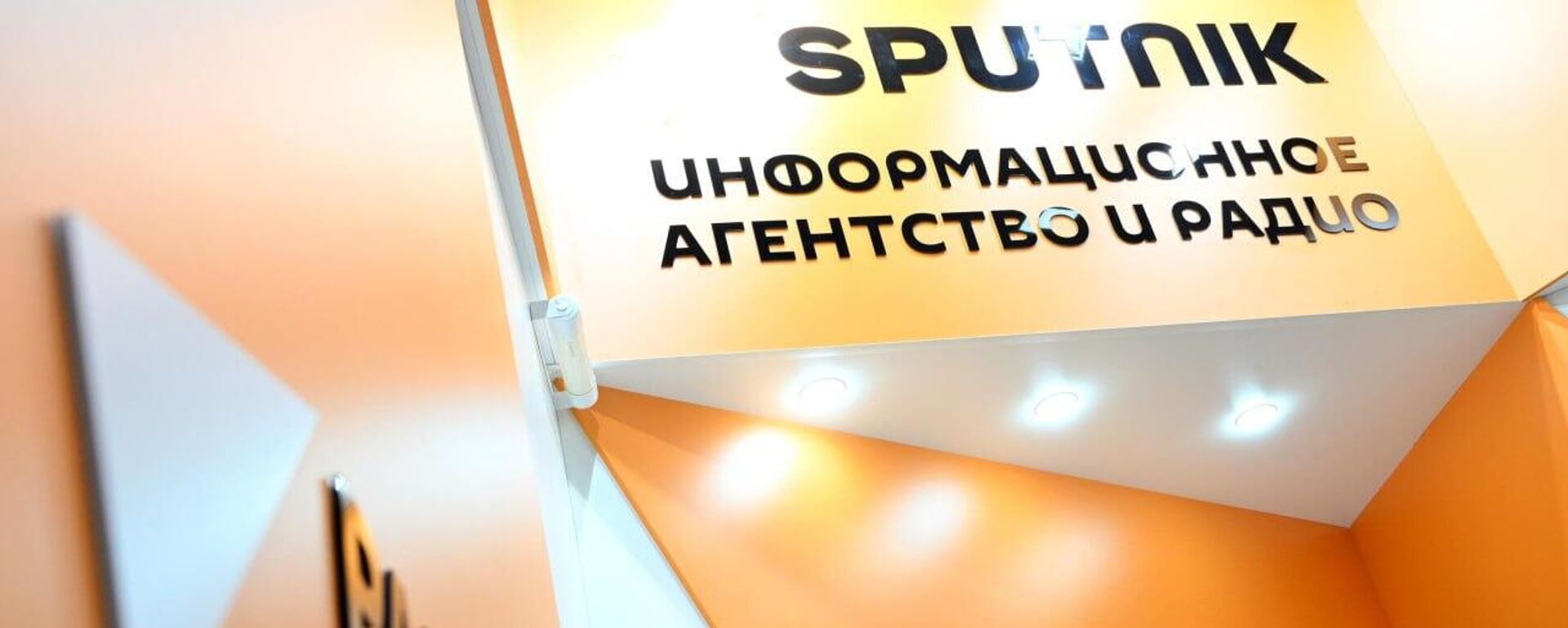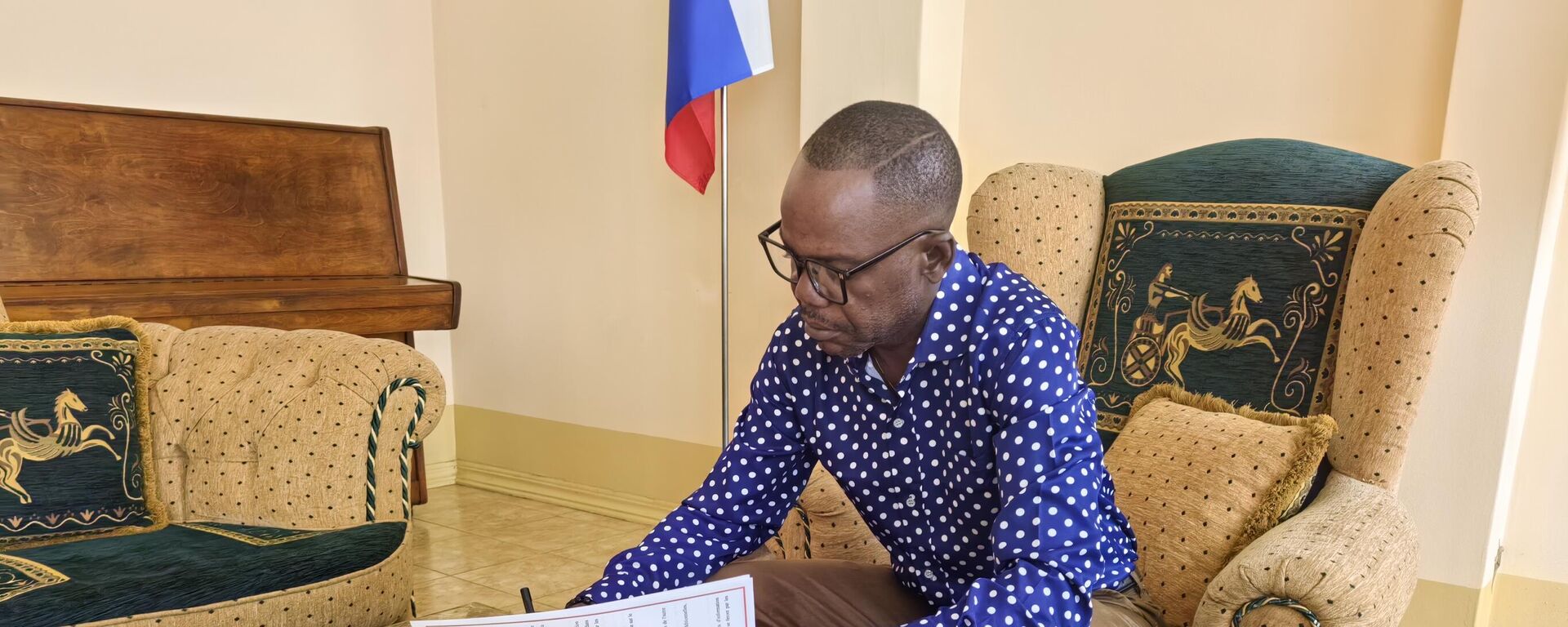https://en.sputniknews.africa/20250222/what-russia-will-stand-for-in-ethiopia--1070762650.html
What Will Russia Stand for in Ethiopia?
What Will Russia Stand for in Ethiopia?
Sputnik Africa
On Wednesday, the international news agency and radio Sputnik opened its first editorial hub in Sub-Saharan Africa, located in Addis Ababa, the capital of... 22.02.2025, Sputnik Africa
2025-02-22T11:24+0100
2025-02-22T11:24+0100
2025-03-02T16:21+0100
opinion
africa
ethiopia
moscow
east africa
russia-africa cooperation
traditional values
traditions
cooperation
global south
https://cdn1.img.sputniknews.africa/img/07e9/02/15/1070763555_0:0:3312:1862_1920x0_80_0_0_d86f2459110c805493e9aa00b0d789a5.jpg
Ethiopia has never been colonized, which is a rare historical phenomenon in Africa. The country is home to 126 million friendly people and is located almost in the center of the continent. Ethiopian Airlines provides direct flights from Moscow.However, we flew on the plane of Valentina Matvienko, the Chairwoman of the Russian Federation Council, who was accompanied by the heads of 14 Russian ministries and departments, as well as a group of international journalists expected to cover the landmark visit to Addis Ababa. The visit was bilateral in nature, with the primary goal of strengthening our mutual relations and giving them a more dynamic character within the framework of our new policy in Africa.They received us with special reverence, and this political hospitality was evident in every aspect. Ethiopia is not only a country known for its coffee and beautiful people; it is also a promising and influential nation on the African continent. The presence of the African Union in its capital, along with its active participation in BRICS, gives Ethiopia significant political weight on the international stage. The cutting of the red ribbon by Valentina Matvienko and Dmitry Kiselev, the Director General of Rossiya Segodnya media group, who accompanied her, symbolized a strategic step in expanding Russia's presence on the African continent. The center offers a range of media, including radio and Internet services, embodying everything that a modern, world-class media outlet can provide. It will complement Radio Sputnik's broadcasts in Mali, Cameroon, Nigeria, Niger, Botswana, Malawi, and Guinea. From now on, Sputnik in Ethiopia will serve as the cornerstone of Russian media on the continent. Unlike traditional correspondent offices that focus on information gathering, this multifunctional editorial center also provides broadcasting, presenting the Russian viewpoint on a wide range of international issues. This will help Africans gain a better understanding of our policies and related matters.A key highlight of the visit was the opening of Sputnik's multifunctional editorial center, focused on both local elites and the public.Developing bilateral economic relations and promoting our interests in Africa are impossible without a proper understanding of the region. Currently, Rossiya Segodnya international news agency aims to expand its informational presence in Africa, aligning with the objectives set during two high-level summits between Russian and African leaders. Broadcasting in languages such as Amharic, Swahili, and Hausa is a priority on our agenda. This endeavor involves significant intellectual effort. Promoting Russian perspectives on various international issues will aid in the informational liberation of the Global South, including African nations. Without such alternatives, the West will continue to dominate the global information landscape, despite the fact that not all evidence supports its viewpoints. At present, the West is closed off to differing perspectives within its own territories, yet it will still have to compete with us in the global information sphere, where we face no constraints. Moreover, the global majority anticipates our presence there.
https://en.sputniknews.africa/20250219/sputnik-plans-to-establish-more-editorial-centers-in-africa-1070725793.html
https://en.sputniknews.africa/20250221/sputnik-signs-cooperation-agreement-with-central-african-republics-press-agency-1070760327.html
africa
ethiopia
moscow
east africa
russia
Sputnik Africa
feedback@sputniknews.com
+74956456601
MIA „Rossiya Segodnya“
2025
News
en_EN
Sputnik Africa
feedback@sputniknews.com
+74956456601
MIA „Rossiya Segodnya“
Sputnik Africa
feedback@sputniknews.com
+74956456601
MIA „Rossiya Segodnya“
africa, ethiopia, moscow, east africa, russia-africa cooperation, traditional values, traditions, cooperation, global south, globalization, development, g20, russia, african union (au), russia today (rt), africa insight
africa, ethiopia, moscow, east africa, russia-africa cooperation, traditional values, traditions, cooperation, global south, globalization, development, g20, russia, african union (au), russia today (rt), africa insight
What Will Russia Stand for in Ethiopia?
11:24 22.02.2025 (Updated: 16:21 02.03.2025) Alexander Yakovenko
Deputy General Director of the Rossiya Segodnya media group
On Wednesday, the international news agency and radio Sputnik opened its first editorial hub in Sub-Saharan Africa, located in Addis Ababa, the capital of Ethiopia. Alexander Yakovenko, the Deputy General Director of the Rossiya Segodnya media group, Sputnik's parent company, shared his thoughts on the agency's prospects across the continent.
Ethiopia has never been colonized, which is a rare historical phenomenon in Africa. The country is home to 126 million friendly people and is located almost in the center of the continent. Ethiopian Airlines provides direct flights from Moscow.
However, we flew on the plane of
Valentina Matvienko, the Chairwoman of the
Russian Federation Council, who was accompanied by the heads of 14 Russian ministries and departments, as well as a group of international journalists expected to cover the landmark visit to Addis Ababa. The visit was bilateral in nature, with the primary goal of strengthening our mutual relations and giving them a more dynamic character within the framework of our new policy in Africa.
They received us with special reverence, and this political hospitality was evident in every aspect. Ethiopia is not only a country known for its coffee and beautiful people; it is also a promising and influential nation on the African continent. The presence of the African Union in its capital, along with its active participation in BRICS, gives Ethiopia significant political weight on the international stage.
The cutting of the red ribbon by Valentina Matvienko and Dmitry Kiselev, the Director General of Rossiya Segodnya media group, who accompanied her, symbolized a strategic step in expanding Russia's presence on the African continent. The center offers a range of media, including radio and Internet services, embodying everything that a modern, world-class media outlet can provide.
It will complement Radio
Sputnik's broadcasts in Mali, Cameroon, Nigeria, Niger,
Botswana, Malawi, and Guinea. From now on,
Sputnik in Ethiopia will serve as the cornerstone of Russian media on the continent. Unlike traditional correspondent offices that focus on information gathering, this multifunctional editorial center also provides broadcasting, presenting the Russian viewpoint on a wide range of international issues. This will help Africans gain a better understanding of our policies and related matters.
A key highlight of the visit was the opening of
Sputnik's multifunctional editorial center, focused on both local elites and the public.
Developing bilateral economic relations and promoting our interests in Africa are impossible without a proper understanding of the region. Currently, Rossiya Segodnya international news agency aims to expand its informational presence in Africa, aligning with the objectives set during two high-level summits between Russian and African leaders.
Broadcasting in languages such as Amharic, Swahili, and Hausa is a priority on our agenda. This endeavor involves significant intellectual effort.
Promoting Russian perspectives on various international issues will aid in the informational liberation of the Global South, including African nations. Without such alternatives, the West will continue to dominate the global information landscape, despite the fact that not all evidence supports its viewpoints.
At present, the West is closed off to differing perspectives within its own territories, yet it will still have to compete with us in the global information sphere, where we face no constraints. Moreover, the global majority anticipates our presence there.



